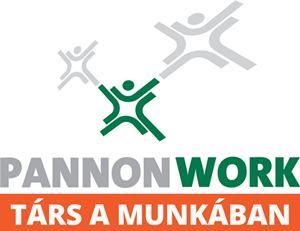Once again, Donald Trump is embroiled in controversy related to Russia.
The ouster of Trump’s national security adviser, Michael Flynn, caught by intelligence agencies speaking with the Russian ambassador about U.S. sanctions and then misleading administration officials about the interactions, marked the latest chapter in a months-long saga in which Trump has been unable to break free from the shadow of the United States’ longtime rival.
Two advisers left the campaign amid questions about their ties to Moscow and the oligarchs that hold sway there. The FBI is probing ties between Trump associates and Russia, as is the Senate Intelligence Committee. The president himself has repeatedly praised Russia’s authoritarian leader, Vladimir Putin, while he has long expressed a desire to build a Trump Tower in Moscow and boasted of how the Trump brand holds special appeal for Russian investors.
All of this coincided with Russia’s role in last year’s U.S. election, in which the Kremlin is accused by U.S. intelligence agencies of orchestrating hacks that targeted Democratic nominee Hillary Clinton and her top aides to weaken her campaign. FBI Director James B. Comey also last month briefed Trump on accusations that the Russians hold compromising material about him, an unverified claim found in a dossier written by a former British spy hired by Trump’s political opponents. Trump has rejected the claim as “fake news.”
Now the foreign power that allegedly hoped to help Trump gain power is in a position to undermine his grip on it, with Flynn’s departure lending new gravity and intensity to long-simmering questions about Trump and Russia.
[Inside Trump’s financial ties to Russia and his unusual flattery of Vladimir Putin]
Democratic lawmakers and a handful of Republicans escalated calls Tuesday for a thorough and independent investigation into the possible connections between Trump and Russia. The line of inquiry could result in uncomfortable questions for the White House, including demands by Democrats that lawmakers seek to make public Trump’s tax returns.
“There was already a cloud hanging over the administration when it comes to Russia, and this darkens the cloud,” said Eliot Cohen, who served as an adviser to the George W. Bush administration and has been a Trump critic. “This is serious.”
Sen. Roy Blunt (Mo.), a member of the Senate Republican leadership, told a Missouri radio station Tuesday that the Senate Intelligence Committee should look into Trump’s Russia connections “exhaustively so that at the end of this process, nobody wonders whether there was a stone left unturned, and shouldn’t reach conclusions before you have the information that you need to have to make those conclusions.”
“For all of us, finding out if there’s a problem or not, and sooner rather than later, is the right thing to do,” he said.
Sen. Marco Rubio (R-Fla.), who had raised initial questions about Secretary of State Rex Tillerson’s past good relations with Putin during his time as ExxonMobil’s CEO, told reporters this week that senators will “go wherever the truth leads us” in the Russia inquiry.
Trump aides stressed Tuesday that the Flynn controversy was entirely about internal dynamics in the White House — and not about any larger issues related to Russia. Press secretary Sean Spicer told reporters that Flynn resigned because of misleading information he gave to Vice President Pence and others, rather than the nature of his contact with the Russians. “Pure and simple, it was a matter of trust,” Spicer said.
Spicer, meanwhile, sought to portray Trump as a hawk when it comes to dealing with the Kremlin. “The irony of this entire situation is that the president has been incredibly tough on Russia,” Spicer said, citing comments from Ambassador to the United Nations Nikki Haley, who has issued recent condemnations of recent Russian military action in Ukraine.
Trump, however, has done little in his public appearances as a businessman, a candidate or as president to suggest a hard line on Russia.
For years before entering politics, Trump appeared to hold Putin in an especially high regard.
“By the way, I really like Vladimir Putin,” Trump told the Russian-language magazine Chayka in 2008 as he debuted a new Trump-branded New York City condo project that was catering in part to Russian buyers. “I respect him. He does his job well. Much better than our Bush.”
Trump continued to praise the Russian leader after President Bush left office, repeatedly citing Putin as a stronger leader than President Obama.
In 2014, a year after Trump hosted the Miss Universe pageant in Moscow, he tweeted that Putin had become a “big hero” in Russia who would “rebuild the Russian empire,” even as Obama’s popularity sagged.
Trump’s positive words about the Russian leader during last year’s campaign surprised some Republicans, considering that most GOP leaders said Putin’s rise was a threat to U.S. allies and interests around the world.
In December 2015, before any ballots were cast in the primary election, Trump declared that praise he had received from Putin was a “great honor” and rejected allegations that Putin had killed journalists and other political opponents. “He’s always denied it,” Trump told ABC’s “This Week” on Dec. 20, 2015, adding, “I think our country does plenty of killing also.”
Trump also seemed to embrace some aspects of Russia’s foreign policy agenda. He spoke of partnering with Moscow to fight the Islamic State and other radical Islamic terrorist groups, while, during the Republican National Convention, his campaign sought a tweak to the GOP platform softening a call for the United States to provide Ukraine with “lethal defensive weapons” in its ongoing fight with Russian-backed separatists.
After WikiLeaks first posted hacked emails from the Democratic National Committee, Trump refused to criticize — instead inviting Russia to hack his Democratic opponent.
“Russia, if you’re listening, I hope you’re able to find the 30,000 emails that are missing,” he said in July, referring to emails Hillary Clinton had deleted as personal while secretary of state.
Later, after WikiLeaks posted thousands of emails from Clinton campaign chief John D. Podesta, Trump resisted findings by U.S. intelligence of Russian interference.
Only in January did he say he concurred with the professionals’ assessment that Russia was behind the cyberhacks that plagued his opposition.
“As far as hacking, I think it was Russia,” he said, before quickly adding. “But I think we also get hacked by other countries and other people.”
Trump has also surrounded himself with aides who had expressed similar views on Russia.
Flynn, who Trump considered naming vice president, had been particularly vocal about the potential for Russia to be a stronger ally against terrorism.
Flynn was also a frequent commentator on RT, the Russian-government funded news network and had been paid to attend a gala for the network in 2015 where he was seated near Putin.
Another top Trump aide, Paul Manafort, had financial ties with business and political leaders linked to Putin, including time spent advising the Putin-backed president of Ukraine. Manafort was named Trump’s campaign manager in June but resigned in August, after Ukrainian anti-corruption investigators announced they discovered a “black ledger” showing $12.7 million designated for Manafort between 2007 and 2012 by a political party associated with the former president of Ukraine. Manafort denied any wrongdoing and rejected the suggestion that he received “off the books” funds from his work in Ukraine.
Another Trump campaign foreign policy adviser, Carter Page, delivered a speech critical of the U.S. role in promoting democracy while visiting Moscow in July. An energy consultant who worked in Moscow for Merrill Lynch a decade ago, Page had been little known in Washington policy circles until Trump named him publicly as an adviser in March.
After reports of his speech in Moscow surfaced last summer, campaign spokeswoman Hope Hicks said Page was an “informal foreign policy adviser” who “does not speak for Mr. Trump or the campaign.” In September, as criticism continued, Page took a leave from the campaign.
Sensing vulnerability, Democrats pressed Tuesday for more investigation into whether Trump has business ties in Russia that could explain his attitudes.
Trump has said he has done no deals there. But over 30 years, he has repeatedly visited Moscow and promised to one day build a tower bearing his name there.
He has also bragged about selling a mansion in Florida to a Russian oligarch for nearly $100 million, and Russian investors were key to the success of several Trump-branded buildings, particularly in Florida following the 2008 crash of the U.S. housing market.
“Russians make up a pretty disproportionate cross-section of a lot of our assets,” Trump’s son, Donald Jr., told a real estate conference in 2008, according to an account posted on the website of eTurboNews, a trade publication. “We see a lot of money pouring in from Russia.”
Trump’s aides have been unequivocal that his campaign did not coordinate with Russians who meddled in the campaign.
Two days after Trump was elected, Russian Deputy Foreign Minister Sergei Ryabkov told a reporter in Moscow that “there were contacts” between Russian officials and the Trump campaign. “Obviously, we know most of the people from his entourage,” Ryabkov told the Interfax news agency.
Russian officials later described those contacts as standard diplomatic interactions — but at the time, they were vigorously denied by Trump’s transition team, with Hicks saying there had been “no contact with Russian officials.”
In fact, Ambassador Sergey Kisylak recently confirmed to The Washington Post that he had spoken with Flynn prior to Election Day.
Asked again Tuesday whether anyone from the campaign had contact with Russians before the election, Spicer told reporters he knew nothing to suggest anything had “changed with respect to that time period.”
https://www.washingtonpost.com/politics/flynn-episode-darkens-the-cloud-of-russia-that-hangs-over-trump-administration/2017/02/14/bc8d752a-f2db-11e6-8d72-263470bf0401_story.html?hpid=hp_hp-banner-main_trumprussia830p%3Ahomepage%2Fstory&utm_term=.2fd55da1df6f



